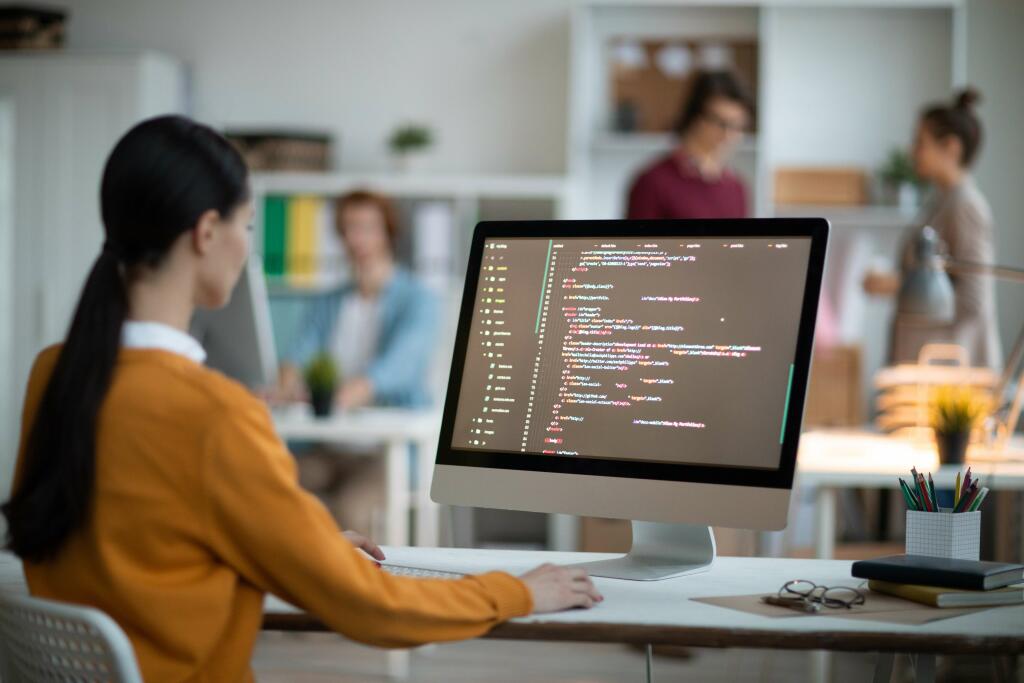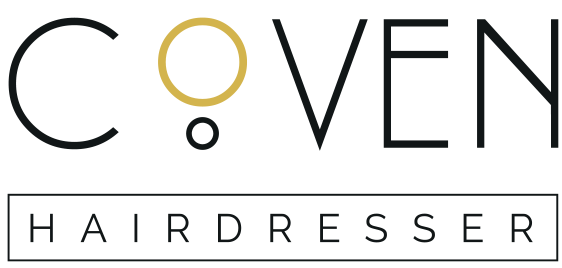Содержание
- Cooper Hewitt Design Museums New Director: i See Design As A Great Equalizer
- Other Word Forms
- Effective Skills For Excellent Facilitation:
- How To Improve Your Facilitation Skills And Be A Great Facilitator
- Are We Missing A Good Definition For Facilitation? Don’t Keep It To Yourself
- How To Pronounce Facilitation?
This bigger picture perspective allows outside facilitators to pose questions that can reveal assumptions within a team that lead to greater alignment around the best path forward. Creating an environment where everyone participates is a critical component of facilitation. It involves awareness of different working styles and personalities and giving additional consideration to incorporating that diversity of thought into group discussions. A facilitator understands, What does facilitation mean for example, the difference between extroverts and introverts and creates opportunities for both to participate. That could mean arranging for periods of silent ideation before a group brainstorming session or asking team members to submit their thoughts in writing before a meeting. Moment-to-moment, maintaining an awareness of how people are participating helps a facilitator to know when quieter individuals need to be drawn into the conversation.
While there is a difference between facilitating and chairing a meeting, the best chairs also play the role of facilitators. Therefore, everything the facilitator does should be aimed at encouraging the participants to share their contributions, while at the same time ensuring that the session does not degenerate into a meaningless discussion. On the other hand, if the facilitator focuses so much on controlling the process, the participants might feel like their participation is stifled, thus making it harder to come up with the best solution. If the facilitator focuses so much on encouraging participation, there is a high likelihood that the session will turn into an animated but unregulated discussion that will take so much time without achieving anything meaningful.
Cooper Hewitt Design Museums New Director: i See Design As A Great Equalizer
Like an itinerary shows the intricacies of an event, an agenda only includes the important topics to discuss and how long to discuss each one. This prevents unnecessary discussion to keep people focused on the objective and regulates discussion time so that the meeting does not run over. You also need to make sure the participants understand that your role in the process is only to facilitate, not to push your own agenda. Whenever you are called upon to facilitate a meeting, brainstorming session, or any other process, the first thing you should always do is to lay the ground rules and objectives of the process.
The more you do it, the more sophisticated your skills will become! In many ways, the best facilitation training is being on the job as a facilitator. It is the job of the facilitator to help the group find common ground among different opinions, simultaneously helping the group arrive at a decision that is accepted by everyone. Remember, the group has a goal, and individual differences will need to be handled to achieve that. Given the time and scope of the session, not every interpersonal difference can or should be resolved; however, it is important that you know the right techniques and group processes for diffusing tension. Sometimes this might mean breaking up the work into smaller groups, taking a break, shifting perspectives or changing the scenery, etc.
You need expertise in verbal and non-verbal facilitation skills in order to keep the group thinking and on the right track. As a trainer, you need to put more emphasis on learning design skills and possess more knowledge about adult learning principles. Understanding your weaknesses will allow you to actively work on them even before an opportunity to facilitate is presented. For example, if you believe you could improve upon your active listening skills, practice them during every conversation you have. Building upon your weaknesses with one or two people can help you prepare for a larger group setting. Facilitation skills are less about being an outspoken leader and more about allowing everyone else to contribute.

The facilitator does not want to simply talk to the group and tell them things and you don’t want to just give the group the answers to their problems. Asking open-ended questions that can spark helpful and beneficial discussions that can trigger solutions is much more valuable to all involved. The facilitator must also know how to probe respectfully, firstly to get people out of their comfort zones, but also to encourage participants to delve deeper into thoughts in order to get more out of the meeting.
Participants are introduced to content and then ask questions while the trainer fosters the discussion, takes steps to enhance the experience for the learners, and gives suggestions. They do not, however, do the work for the group; instead, they guide learners toward a specific learning outcome. Rather than being a player, a community engagement facilitator acts more like a referee. You help them communicate with each other and the community at large. Most important you help them define and reach their goals by working together. A facilitator has to know how and when to bring the energy into the room and at the same time when it needs to be reeled back in.
Content is fact checked after it has been edited and before publication. That being said, don’t assume you can wing it by simply relying on the skillset you already have. Instead, acknowledge your weaknesses and improvement areas and actively work on improving them. Remote work is not just a hypothetical future of work by this point, it’s the reality of our everyday lives, and it’s here to stay.
Expert facilitators design a complicated web of interactions through combining tools, time, talking, and turbulence to help people do their best work in tough environments. Facilitation skills enable you to help groups of people work together effectively and productively. Using facilitation skills such as flexibility and time management https://globalcloudteam.com/ allows you to make progress and achieve success in your daily life. Practicing these skills can help in your job search as well as in the workplace once you have been hired for a job. In this article, we will discuss examples of facilitation skills, how to become an effective facilitator and how to use these skills in the workplace.
Other Word Forms
It is a tenet of facilitation that the facilitator will not lead the group towards the answer that they think is best even if they possess an opinion on the facilitation subject. The facilitator’s role is to make it easier for the group to arrive at its own answer, decision, or deliverable. « One who contributes structure and process to interactions so groups are able to function effectively and make high-quality decisions. A helper and enabler whose goal is to support others as they pursue their objectives. » – I. Whether in a classroom or a meeting, effective facilitators must focus on group dynamics and processes.
As teams work through challenges, the facilitator gently reminds them of the specific goal under consideration to guide discussions and keep them moving steadily forward. Active listening not only ensures clarity of understanding but also serves to reveal assumptions in decision-making that can be easily missed during group discussions. By modeling active listening, facilitators set an example for other members of the group, enabling more fruitful communication as team members adopt the practice. They guide the team onboard where they need to go, with no objective other than to lead the team to their destination. A team can navigate a meeting without sails, but it is much easier and more effective if they have facilitation skills to guide them.
A facilitator needs to be able to actively listen to their group and understand what they are trying to say. Paraphrasing, summing up or using other active listening techniques are great ways to fully grasp and gauge the meaning of what people are saying. An excellent facilitator needs to be able to listen to a group, an individual and also themselves.
Effective Skills For Excellent Facilitation:
Crisp & comprehensive,I found this very, very useful as I embark on a training for academicians who now need to shift from lecture mode to facilitation mode. You’ve clearly articulated so many of the foundational pieces of preparing and facilitating a group. A facilitator does what is necessary within a group to make progress. Time efficiency is vital to the facilitator in making progress under deadlines.
- You will need practice to master the skills of picking up on the atmosphere, measuring the emotional temperature, and helping the group achieve its potential.
- Facilitators should consider devoting half the time of a given session to having participants work on an issue in groups of three to eight people.
- May i share it with my team of business leaders as we are asking them to become our internal trainers.
- She works at the intersection of design research, strategy, and user experience design.
- This leaves time and brain space for the team to focus on their more deep-focus work.
- Collaborating is never easy all the time–and it’s even harder when the issues and challenges you’re working on together create discomfort, anxiety, or fear.
Whatever your super-skill might be, make sure to focus on that instead of poring over all the areas you need to improve. One of the main things you’re going to be doing as a facilitator is asking people to do certain exercises and explaining how they work. Funnily enough, this is the part of facilitation that causes the most difficulty for a lot of facilitators. Social facilitation is the theory that we tend to do better on easy tasks when we know we are being watched or assessed. We do less well on more complex tasks when we know we are being observed by others.
How To Improve Your Facilitation Skills And Be A Great Facilitator
In his own mind he held that all things which were legal were permissible in facilitating the ends of justice. You have to respect certain rules of law and progressive means of facilitating change from other avenues. And as it turns out, those adorable pink drill bits are potentially facilitating the addition of carcinogens into the environment. Of media to a broad array of channels, both traditional and digital, is a major contributor to the development and growth of our sport and the fan base of individual players.
People have reasons for behaving as they do, and if you don’t make an effort to understand their stance, they might keep playing hardball in the session. However, you still need to keep in mind that the group has its own goals, and one person hijacking all the attention is a dangerous track. Practise your active listening skills as a facilitator, and encourage all participants to do the same.

Still, the two worlds do overlap when it comes to speaking in front of a group and managing group conversations. The ability to communicate clearly, both verbally and non-verbally, is extremely relevant to both trainers and facilitators alike. Get all individuals in the room to feel like they are in a group with a shared interest. Foster participation and get people to come up with ideas, thoughts and perspectives that add value.
Add facilitation to one of your lists below, or create a new one. Any opinions in the examples do not represent the opinion of the Cambridge Dictionary editors or of Cambridge University Press or its licensors. An underrated, yet vitally important, role within a brainstorm is the graphic facilitation.
Not to be mistaken for lazy facilitation, Light Facilitation is still active and attentive to a group’s purpose, energy, needs, and next steps. Light Facilitation is sufficient for most kinds of collaborative work, and the increased productivity and deep thinking a team can achieve when they’re allowed to just focus on the work, is substantial. In the most successful teams I’ve seen, everyone on the team is willing and able to step up and practice light facilitation when needed. But becoming a strong facilitator is well-within the grasp of almost anyone of any profession who has a knack for reading people and cares enough to learn, falter, and keep getting back on the facilitation horse.
Are We Missing A Good Definition For Facilitation? Don’t Keep It To Yourself
And while facilitation has made it to the management bible and one can be certificated from top educational institutions, there is still a lot of opacity around what, exactly, facilitation is and how, exactly, to engage with it. Information Technology Empower hybrid, remote, or distributed teams to work better together. Executives Activate imagination and innovation across all your teams.
In this guide, learn about virtual facilitation and be a confident facilitator, whatever the format. As a facilitator, being able to adapt on the fly is an essential skill, and it is also necessary to communicate and confirm the potential changes to the agenda with the group. At the end of the day, as a facilitator, you are helping a group achieve the common and agreed-upon objectives they want. So, if there are any change in the desired outcomes, they should be agreed upon by the group. In general, effective facilitation assumes efficient timekeeping, with only well-grounded exceptions for going overtime in discussions. Remember, if something takes more time than planned, it usually comes at the expense of some other item on the agenda.
How To Pronounce Facilitation?
If you were asked to do a more complex task, such as painting the same common area while people are periodically watching, you might feel a lot more stress and be prone to a number of mistakes. I am Kusum Wagle, MPH, WHO-TDR Scholar, BRAC James P. Grant School of Public Health, Bangladesh. I have performed diverse roles ranging from lecturer in the public health department of colleges, nutrition coordinator, research coordinator and consultant, in different programs, projects and academic institutions of Nepal. I also hold immense experience in working closely and persistently with government organizations, non-government organizations, UN agencies, CSOs and other stakeholders at the national and sub-national level. I have successfully led and coordinated different projects involving multi-sector participation and engagement.
Dealing with conflict-stacked situations are among the biggest challenges to effective facilitation. Often, there are underlying conflicts behind disagreements taking place in a conversation. Finding the right process should be done from the viewpoint that participants must be kept engaged throughout the event. Group engagement is something the facilitator should be conscious of throughout the workshop. We have collected below the most important skills that a facilitator needs, divided into two parts of the facilitation process.
Facilitation skills are vital in the present day for all specialists dealing with any generous of work set, containing supervision, boards of directors, top guidance, task forces, agencies, and project groups. For example, those whose meetings are largely information sharing, announcements and reports. Or groups who meet regularly for routine decisions about standard problems like scheduling. Those kinds of issues can be handled without much need for meeting facilitation.
Focusing on your strengths allows you to practice facilitation immediately. Understand the skills you possess and use them to bring a group of people together to make progress. For example, when you are presented with a chance to be the leader of a group, practice your facilitation strengths instead of acting like the boss.
